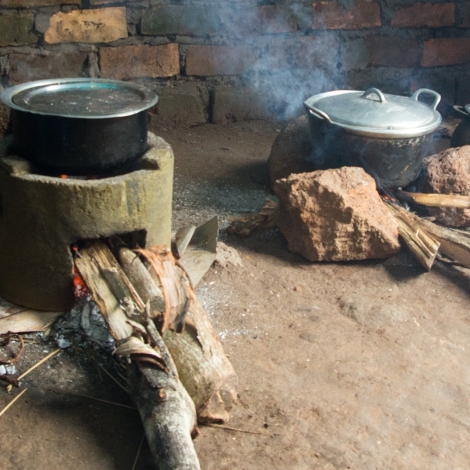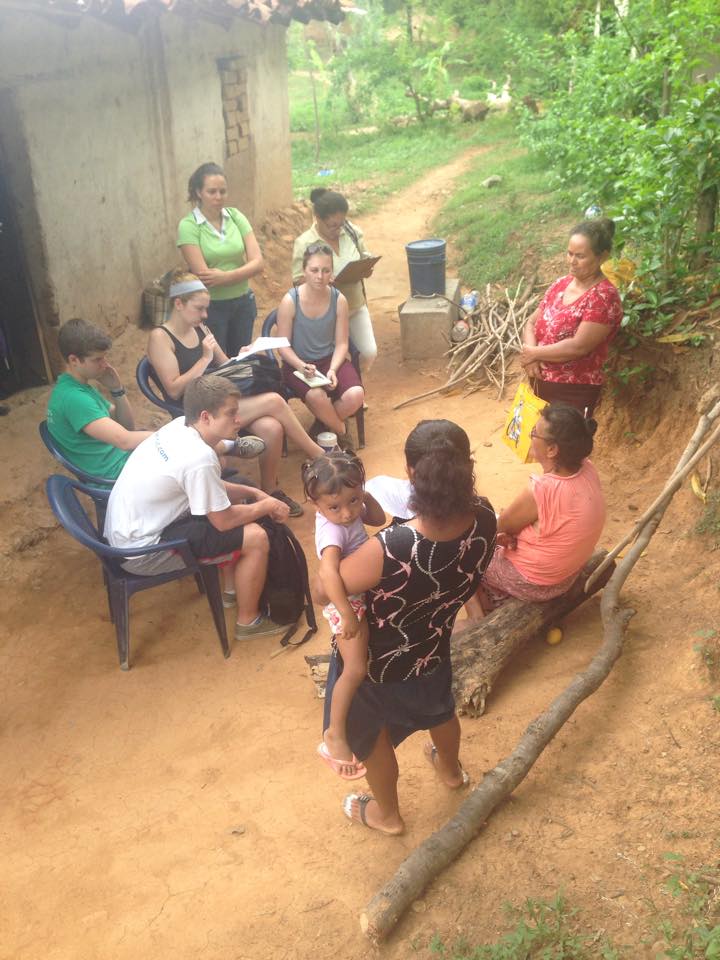Communities in rural Kenya are still heavily dependent on wood fuel and other biomass for their basic energy needs. Reliance on biomass can lead to health and environmental deterioration: respiratory illness from smoke inhalation, eye strain due to poor lighting, and air pollution. The development of renewable energy resources in rural areas can help to reduce these problems.
Exacerbating the current issue is the difference in energy sources used by urban and rural areas of Kenya. The differences in fuel types are based on both cost and availability. In urban areas, electricity accounts of 55 percent of energy used for lighting, followed closely by kerosene at 42 percent. Charcoal, firewood, paraffin, and LPG continue to be the main sources of cooking fuel, while 10 percent of the urban population relies on firewood.
In contrast, almost 90 percent of the rural population depends on firewood for cooking and heating, resulting in higher in-home emissions than their urban counterparts. Firewood is also increasingly supplied from private smallholder lands and farm woodlots, making it more challenging for rural communities to afford or access.
Due to the increasing cost of firewood and difficulties in creating sustainable supply chains, rural areas are at a particular disadvantage in terms of energy. Communities are often not connected to grids, and their remoteness makes it expensive to extend infrastructure to serve them. Without energy, smallholder farmers and rural small enterprises face barriers in adopting new technology and linking to markets and modern value chains that would allow them to grow their businesses and improve their livelihoods.
One solution to these barriers is small-scale renewable energy technologies. These solutions have many benefits for rural areas. Off-grid renewable energy sources, such as solar power, can deliver cheaper and cleaner power than grid connections. Development of the renewable energy sector also creates jobs and brings a host of social benefits, such as access to information technology.
The development of energy resources also contributes toward meeting the United Nations’ Sustainable Development Goals (SDGs).
- Reduction of extreme poverty. Access to energy services can facilitate economic development, through ways such as micro-enterprise, extending livelihood activities beyond daylight hours, and the creation of locally owned businesses (SDG 1: No Poverty)
- Reduction of hunger and improvements in access to safe drinking water – can improve access to pumped drinking water and 95% of staple foods need cooking before they can be eaten (SDG 2: Zero Hunger)
- Reduction of child and maternal mortality, and reduction of diseases – for a functioning health system, e.g. lighting operating theaters, refrigeration of vaccines and other medicines, sterilization of equipment, and transport to health clinics (SDG 3: Good Health and Well-being)
- Reduction in the time spent by women and children (especially girls) on basic survival activities (gathering firewood, fetching water, cooking, etc.), and lighting permits home study and increases security (SDG 4: Quality Education, and SDG 5: Gender Equality)
While there are clear benefits to investing in renewable energy sources, steps must be taken to promote energy access in both the technical and policy realms. For example, sustainable biomass management technologies such as biogas digesters that use animal waste can be further explored as a resource for providing rural areas with energy. Kenya should also have a strong political commitment by developing energy policies for rural communities, supporting local research, and taking action in providing needed resources. Partnership between the rural communities, the Kenyan government, and researchers can help to reduce the heavy dependency on biomass use and promote cleaner energy sources.
About the Author
Pauline Mweu is a Research Fellow at Engineering for Change, pursuing a Bachelors Degree in Electrical and Electronics Engineering at Jomo Kenyatta University of Agriculture and Technology in Nairobi, Kenya. She is a member of the Institute of Electrical and Electronics Engineers (IEEE) – Kenya Section and American Society of Mechanical Engineers (ASME). Her research is on Hybrid Small-Hydro and Solar PV for power generation in rural areas.


This is a fantastic read. I am Michael Ampofo from Ghana (Ashesi University). Currently my team and I are working on solar powered induction cookpots for people in the rural areas of Ghana, we have made head way and hope to complete the project by May of this year.
where do I buy an Ace onecookstove in cape town